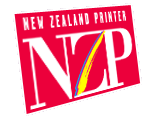Tags:
With the ink barely dried on Pacific Printing Group’s (PPG) most recent deals to buy two Australian print companies, the market is speculating who the next target might be. The Auckland-based company is building up a reputation for acquisition, with Vega Press in Melbourne and Agency Press in Sydney its most recent buys. PPG’s executive chairman Geoff Wilding hasn’t ruled out one or two more Australian buys for the company, which will continue PPG’s strategy of targeting well run, high capacity printing companies equipped with the latest technology.“We have a carefully thought out long term plan that will see the company continue to grow substantially from where it is today delivering value to our shareholders, opportunity for our staff, and premium service for our customers,” says Wilding.
If another Australian acquisition goes ahead, the move will cement PPG’s position as a major player in the sheetfed market on Australia’s east coast.
As with Agency and Vega, Wilding says any future companies are also likely to be left to manage themselves. “I am incredibly proud of the businesses we have acquired,” says Wilding.
“Over the years, I have learned some valuable lessons: buy the best, retain the management, motivate them to continue to perform, and leave them free to do so. Therefore we see the role filled by the group’s CEO as more that of a coach rather than a typically autocratic one.”
Wilding says although management continues as is, PPG offers the companies it acquires a lot in terms of support. “At an operating level our companies typically enjoy better buying privileges from key suppliers due to our size, which obviously contributes to our earnings. We are also able to share best practices across the group with individual managers more willing to share ‘business secrets’ with each other. And, importantly, we are able to encourage the sharing of work – capturing margin and cross selling services,” he says.
However, it is at a financial level that he believes PPG adds the most value by focusing on maximising the efficiency of its operating companies’ balance sheets. He gives the example of the printing industry typically requiring a heavy investment in plant and equipment.
“The advantage of this is that the plant has real value and underpins the purchase price of the business. However it is all too easy to over-invest in plant – falling in love with latest technology without ensuring it will deliver an acceptable return on investment,” explains Wilding.
“Therefore Pacific Print Group undertakes a rigorous analysis of all capital expenditure – ensuring an adequate return on investment. This makes certain the group maintains plant capable of meeting our customers’ needs while maximising free cashflow, available to be reinvested in growing the group and/or paid out as dividends to shareholders.”
PPG is expected to make another announcement within the next few weeks.






